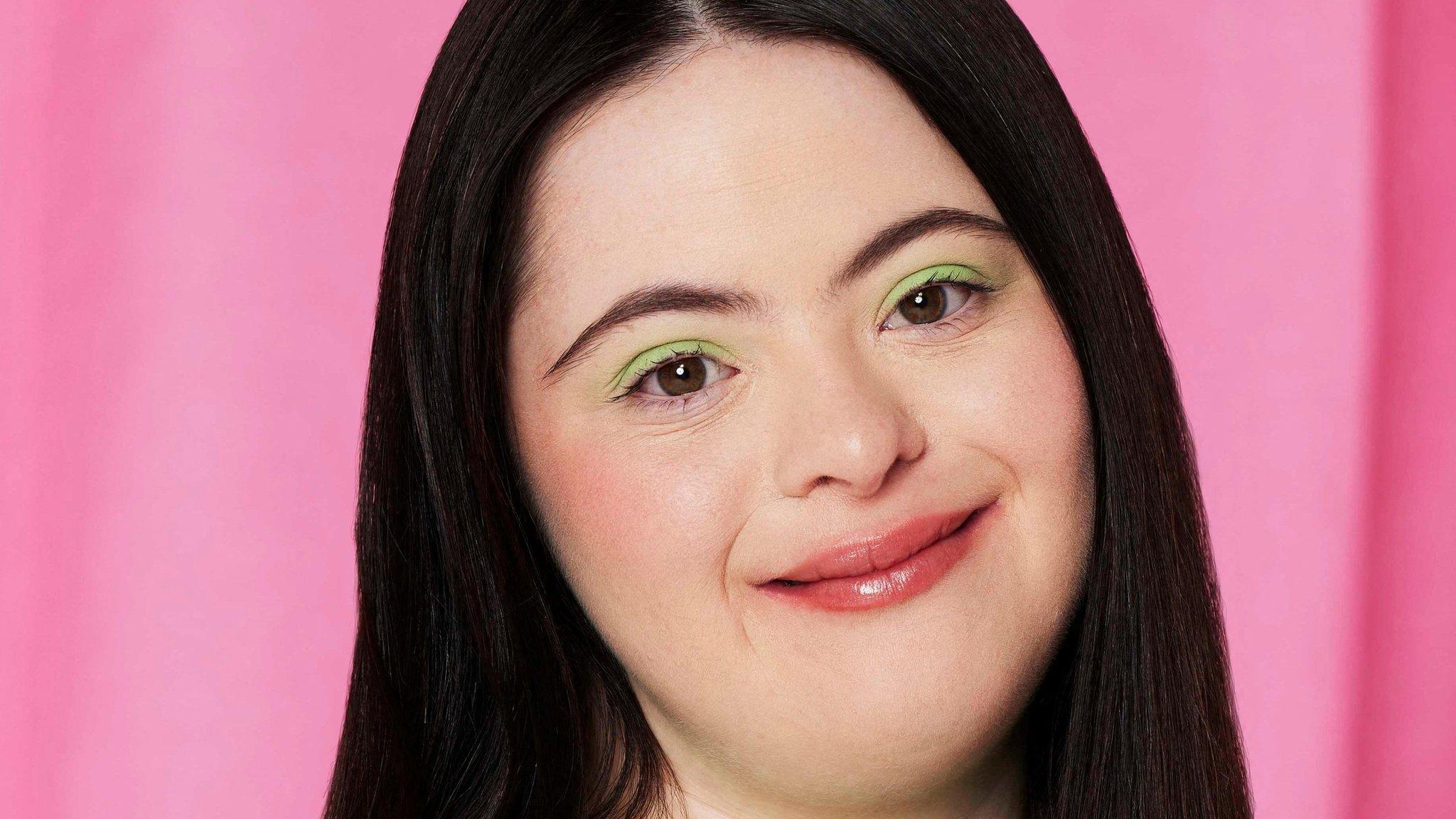Parents call for abortion law change
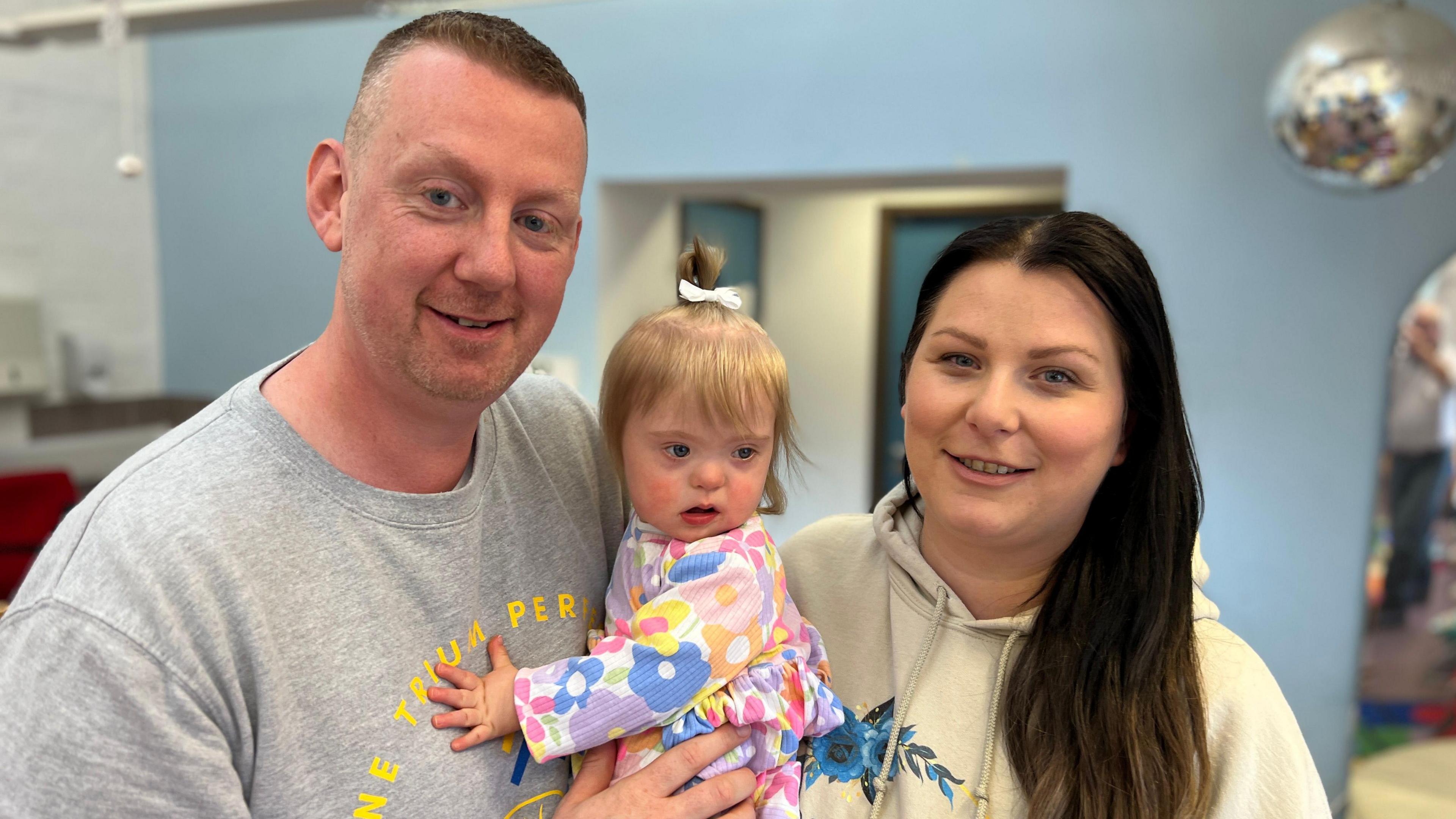
There are estimated to be around 47,000 people like Verity with Down's syndrome in the UK
- Published
A couple who have a daughter with Down's syndrome called for a change in the law on abortion.
Steve and Natalie, from Northampton, said the birth of Verity, 15 months ago, had changed their view on the current legislation.
At the moment, pregnancies which involved foetuses with Down's syndrome could be terminated up to the point of birth.
The couple want legislation for Down's syndrome amended so that it is in line with the 24-week cut-off for standard pregnancies, which Natalie said was "about equality".
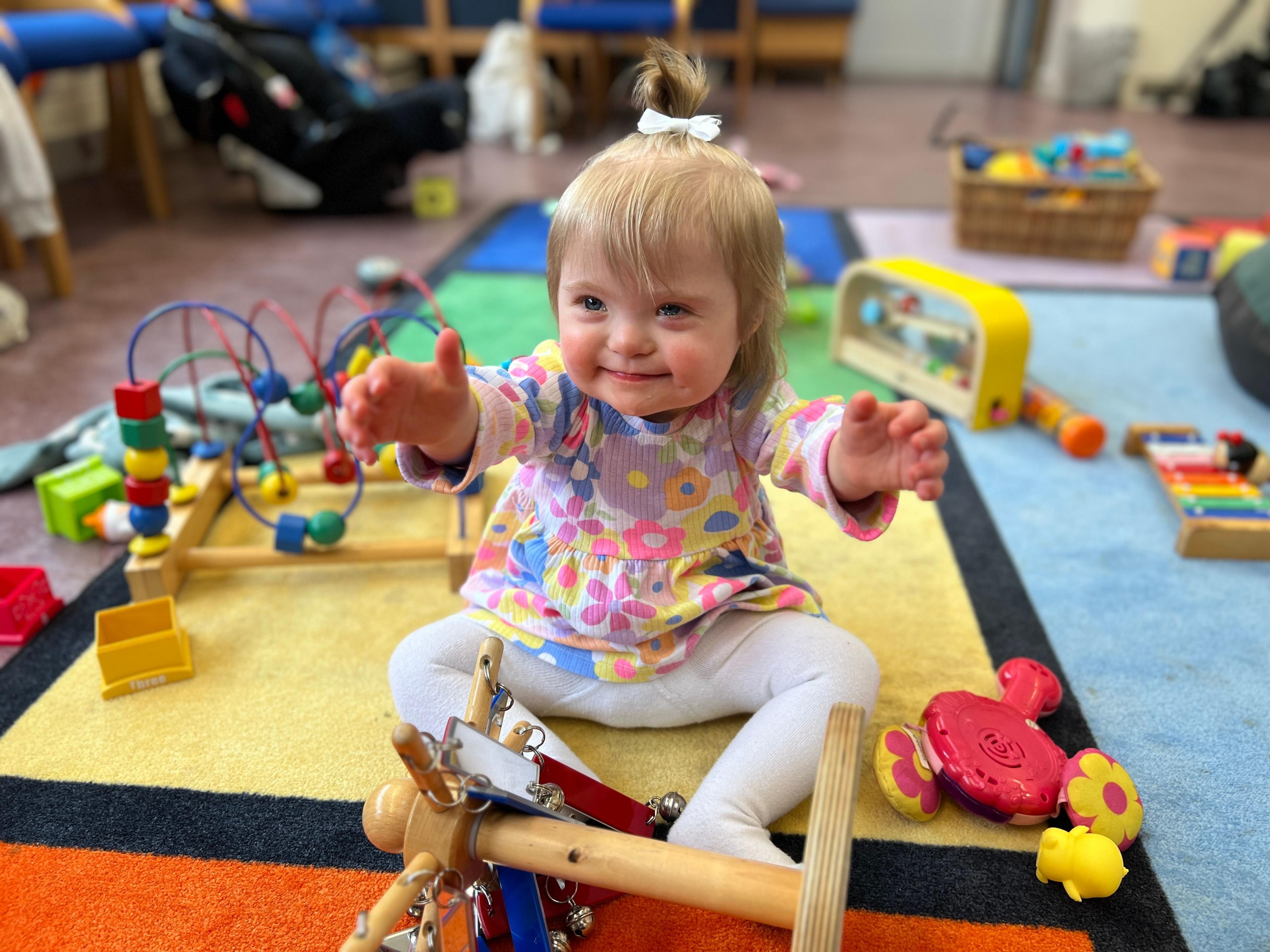
Steve and Natalie said the birth of Verity 15 months ago changed their view on legislation
"She [Verity] wants to eat, she wants to sleep, she wants to have a clean bum - she has no extra needs than any other child her age," Natalie added.
People with Down's syndrome are born with an extra chromosome, usually by chance due to a change in the sperm or egg before birth. There are estimated to be around 47,000 people with Down's syndrome in the UK.
According to the Down's Syndrome Association, external, people who have Down's syndrome will have some level of learning disability, but also a range of abilities.
"Some people will be more independent and do things like get a job," it said.
"Other people might need more regular care."
Steve added: "I was very much of the old-fashioned view that I didn't want to take on that burden - that was the word that would have been in my head at the time.
"Now I can see how many possibilities there are for any child with a disability."
Woman with Down's syndrome loses abortion law appeal
- Published25 November 2022
Down's syndrome legislation 'gives people a voice'
- Published2 April 2022
Line of Duty star takes on Hollywood with his own script
- Published21 August 2023
The law as it stands effects a range of disabilities - but an amendment that had been due to be voted on this week would have only changed the abortion law as it relates to Down's syndrome.
A vote will not now be taking place due to Parliament being dissolved after the calling of the general election for 4 July.
It would have been a free vote, with MPs not forced to follow a party line.
However, some charities and professional bodies said the current legislation gave parents the time to get medical advice and make difficult decisions.
Jane Fisher, chief executive of Antenatal Results and Choices, said a change to the law "would put undue pressure on women and families at a time that it would feel almost unbearable".
She added: "You're grappling with what to do, you're gathering information, you're taking advice from your medical team... if you're told you have days, or even hours to make that decision... it makes a really distressing circumstance even worse."
In November 2022, a woman with Down's syndrome lost a legal challenge to the existing law - the 1967 Abortion Act, external as amended by the 1990 Human Fertilisation and Embryology Act, external - when judges at the Court of Appeal decided it did not interfere with the rights of living disabled people.
Heidi Crowter argued that the rules discriminated against people with Down's syndrome and "doesn't respect my life".
She later said she would take her case to the European Court of Human Rights.
Follow Northamptonshire news on Facebook, external, Instagram, external and X, external. Got a story? Email eastofenglandnews@bbc.co.uk, external or WhatsApp us on 0800 169 1830
Related topics
Related to this story
- Published20 March 2024
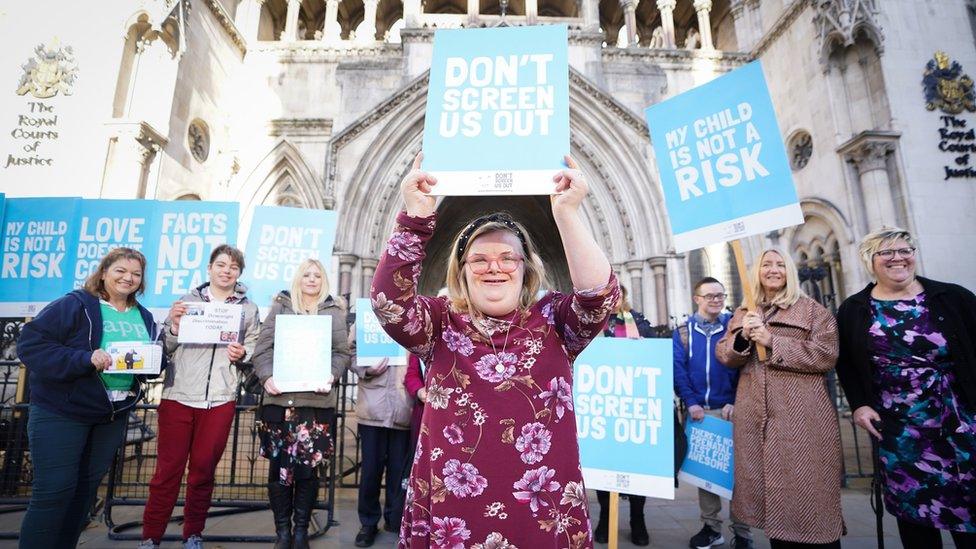
- Published29 March 2024
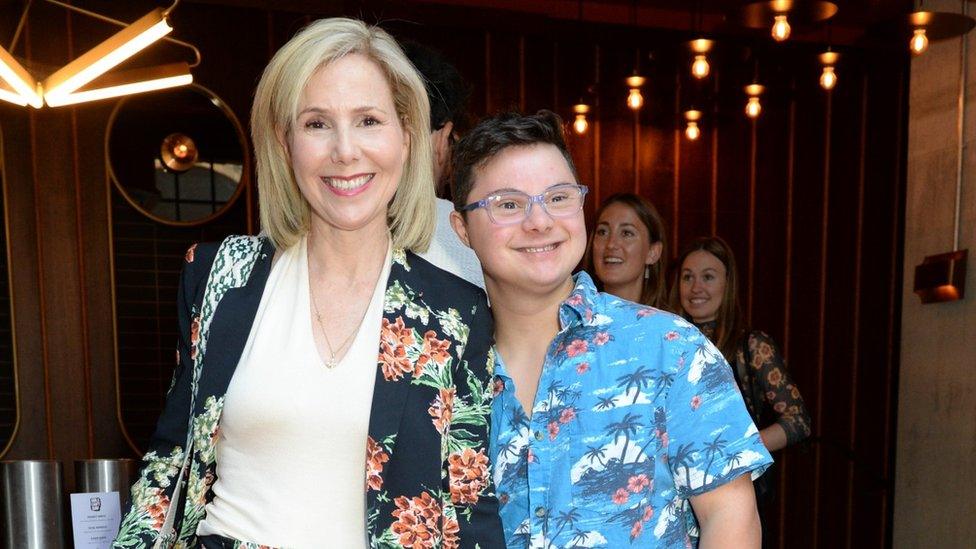
- Published31 December 2023
